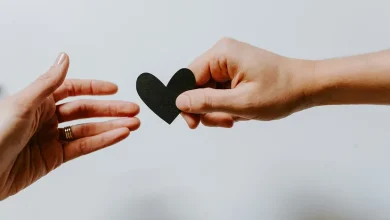Please who are the salafiyoon and is okay to identify oneself as as a salafiyoon?
Ibn Abdir-Rahman Al-Atharī (Al-Maymūnī)
Wa ‘Alaykumusalām Warahmatullāh Wabarakātuh.
The term salafi is used to describe those who attribute themselves to the salaf
Originally when it is said “salaf”, it can mean what has past or those who have preceded someone and so this means that our parents and grandparents are our salaf.
– In the Qur’ān, Allāh subhanahu wata’ala said
وَلَا تَنْكِحُوا مَا نَكَحَ آبَاؤُكُمْ مِنَ النِّسَاءِ إِلَّا مَا قَدْ سَلَفَ
“Do not marry the women your fathers have married except that which has ‘Salaf’ (past)
[Sūrah Nisā verse 22]
– And in the hadīth,
It was reported that the prophet salallāhu alayhi wasalam said to Fātimah radiyallahu anha on his death bed
فاتقي الله واصبري، ونعم السلف أنا لك
Fear Allāh and be patient, for I am a blessed salaf for you (Sahīh Muslim)
Having established what is regarded as salaf, then let’s bring it in the light of the question you’ve asked.
The prophet salallāhu alayhi wasalam said
خير الناس قرني، ثم الذين يلونهم ، ثم الذين يلونهم
‘The best people are my generation then those that come after them and then those after them.
From this hadīth, we get that three generations are mentioned here and this is where some of the people use the word Salaf to mean the first three generations mentioned in this hadīth even though it can also be said to mean other than that (those who came after them are also salaf as long as they preceded us and the statement of the prophet salallāhu alayhi wasalam to Fātimah radiyallahu anha is an evidence for this).
While the term Salafu Sālihīn (pious predecessors) have been used by some to describe the first three generations alone, they have also referred to those that came after them as Khalafu Sādiqīn which means the truthful successors (meaning that these ones actually succeeded the pious predecessors).
And you can find this in many places a popular saying
كل خير في اتباع من سلف** وكل شر في ابتداع من خلف
Every good is in the following of the Salaf ** And every evil is in the innovations of the Khalaf.
Now does this means that everyone after the first three generations are bad or everyone in the first three generations referred to the salaf is good?
No.
From after the first three generations, we have the likes of Ibn Taymiyyah, Ibn Qayyim Al-Jawziyyah, Imām Adh-Dhahabī, Imām Ibn Kathīr, Imām An-Nawawī and others rahimahumullāh who are good and they are Salaf for many Muslims today even though they were not part of the first three generations.
And this is same with the first three generations where we have people who we can’t take as salaf or look up to them for example the likes of Ahmad Ibn Abī Du’ād who studied from Bishr Al-Marīsī who studied from Jahm Ibn Safwan who studied from Al-Ja’d Ibn Dirhām and it has been mentioned by Ibn Asākir as reported in Al-Bidāyah Wa Nihāyah that Al-Ja’d learnt from Bayān Ibn Sam’ān who took this statement from Tālūt the son of the sister of Labīd Ibn Al-A’sām who used to say that the Tawrāt (Torah) was created and he was the Jew that did magic on the prophet salallāhu alayhi wasalam. All of these people mentioned here lived in the first three generations and they learnt an evil creed from one another. So because they are all from the first three generations, are we going to refer to them as our Salaf? No. This is an evil chain that led to the Mihna during the time of Ahmad Ibn Hanbal rahimahullāh on the famous issue of if the Qur’ān was created or not.
Now we may understand why we always mention Salafu Sālihīn (righteous predecessors) because these set of people were not from the righteous predecessors despite that they lived in that generation and we say Khalafu Sādiqīn (Truthful Successors) for there are those who succeeded the first three generations but are not truthful and we do not take them as role models or Imāms of our dīn and Allāh knows best.
You will also find so many scholars after the prophet salallāhu alayhi wasalam that used the term salaf or salafi for example
– Imām Ayyūb As-Sikhtiyānī as mentioned in Usūl As-Sunnah of Ibn Abī Zamānīn.
– Imām Awzā’ī as mentioned by Khatīb Baghdādī in his book Sharafu Ashabul Hadīth.
– Ibn Abī Zayd Al-Qayrawānī, Imām Al-Lālikāi, Imām Abū Uthmān As-Sābūnī, Al-Asbahānī, Ash-Shātibī, Ibn Hajar and a host of others which can be found in books like Siyar Alam An-Nubala, Al-Muwāfaqāt, Al-Hujjah Fī Bayān, Sharh Usūl I’tiqad Ahli Sunnah Wal Jama’ah and other books of our Imāms. More recently, Shaykh Bakr Abū Zayd, Ibn Bāz, Uthaymīn, Albānī and a host of others rahimahumullāh have used this term.
Having established this fact to make us understand what is meant by Salaf from different angles, then we move to the question itself which is
Who are the Salafiyūn and is it okay to identify oneself as Salafiyūn?
The Salafiyūn generally are those who ascribe themselves to Salafiyyah. Salafiyyah here as the manhaj (methodology) and the creed they ascribe to is the creed of Ahlu Sunnah Wal Jama’ah (ASWJ) while some have said that they all mean the same.
The Salafiyūn is said to be those who strive to follow the creed and understanding of the Sahābah, the Tābi’īn and those who came after them that followed them in creed and understanding also.
So if a muslim identify himself with this name based on what we’ve explained then there is no harm in it
The people of Usūl will mention the Qāidah (principle)
العبرة بالحقائق لا بالمسميات
Or
العبرة بالحقائق والمعاني لا بالألفاظ والمباني
Or
العبرة بالحقائق والمعاني لا بالأسماء والمباني
In a nutshell, what is considered is the reality and not names.
Which means you can find one ascribing themselves to the Salafiyūn or to the creed of the Salaf and in reality this person is upon what he or she is saying and you can also find people ascribing themselves to this name but they are far from it.
Other names that this person can also find that are similar and people ascribe to are
1. At-Tāifah Al-Mansūrah (the victorious group)
2. Al-Firqatu An-Nājiyah (the saved sect)
3. Ahlul Athar
4. Ahlul Hadīth
5. Athariyyah
6. As-Salafiyyah (from the Salafiyūn in the question).
7. Ahlu Sunnah Wal Jama’ah
And some of these names were mentioned by Shaykh Bakr Abū Zayd in his book
حكم الانتماء إلى الفرق والأحزاب والجماعات الإسلامية
Advice: if this person is new to Islām as you’ve said, then I suggest she don’t bother herself much with these names and strive to learn her dīn from authentic and trusted source because so many attribute themselves to Salafiyūn and other names here today but they are far from it just like the distance between the heaven and earth.
The poet was truthful when he said
وكل يدعـــي وصلا بلـيلـى * * وليلـى لا تقـــر لـهم بذاكـا
Everyone claims to have a connection with Laylah, but Laylah does not affirm that for any of them (don’t agree with what they say)
Bārakallāhu Fīkum Wa Jazākumullāhu Khayran
© Ibn Abdir-Rahman Al-Atharī
(Al-Maymūnī 📚)




